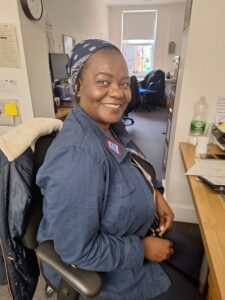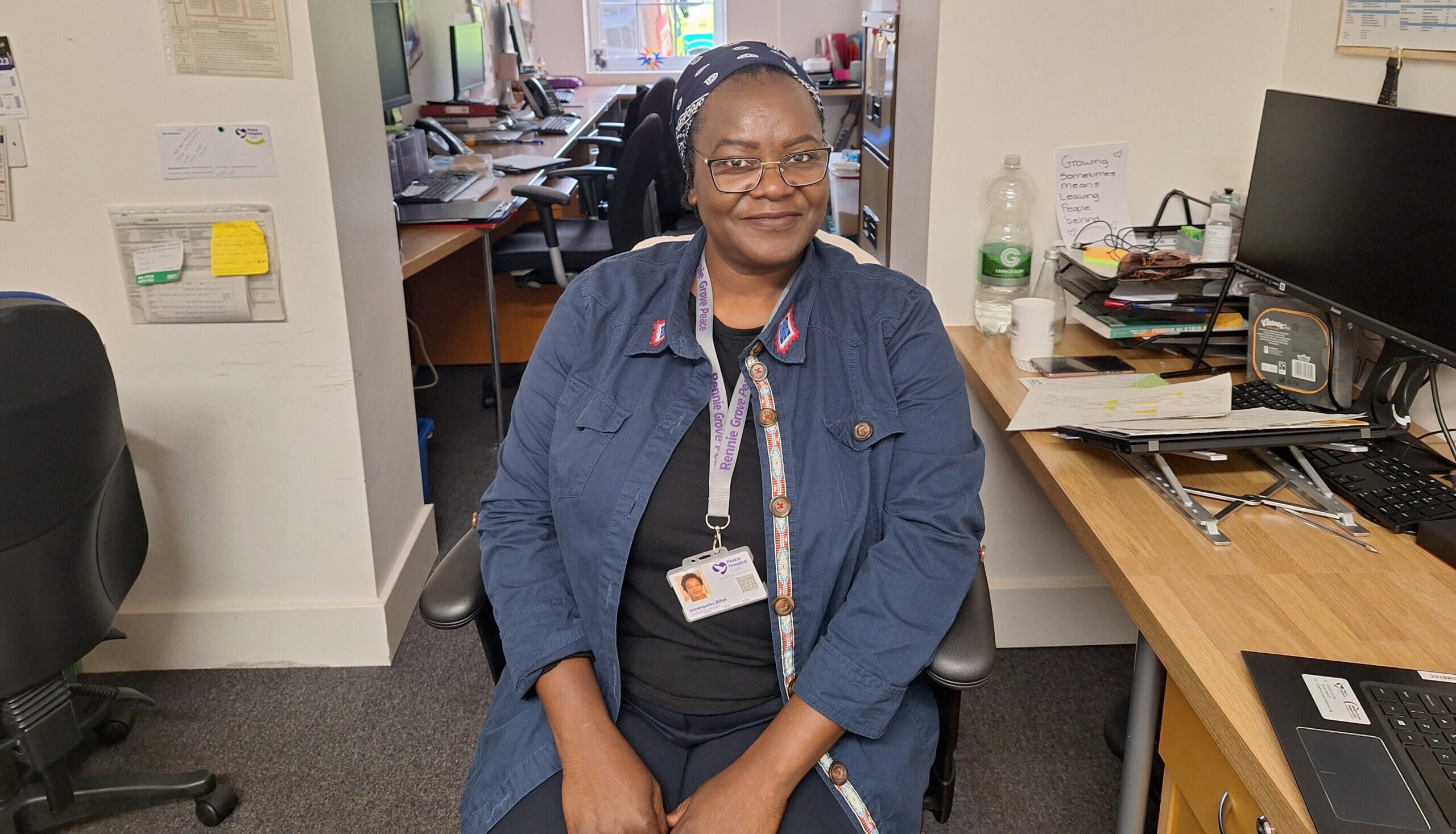As part of Black History Month which, this year, carries the theme ‘Saluting our Sisters’, we are shining a spotlight on Simanga. From helping to develop community gardens for orphanages as a child, she has now become our Senior Social Worker supporting our patients and their loved ones. We asked Simanga a few questions:
How would you describe your role?
 My work focuses on supporting patients and families, mostly in our Inpatient Unit in Peace Hospice, Watford, but outpatients too. I’m there for the patient and also for their families and children – whoever is important to them. Everyone is different and the support they need is different – some will open up immediately, while others take a little more time. I just go by what they are feeling and how much they want to share at any time.
My work focuses on supporting patients and families, mostly in our Inpatient Unit in Peace Hospice, Watford, but outpatients too. I’m there for the patient and also for their families and children – whoever is important to them. Everyone is different and the support they need is different – some will open up immediately, while others take a little more time. I just go by what they are feeling and how much they want to share at any time.
You can imagine that a lot of our patients and their loved ones are going through difficult times, and we’re there to help them however we can. Emotional and psychosocial support is key, but I also provide them with practical support including linking them with other organisations where appropriate, this includes helping with referrals and applications for financial support – it takes the pressure off them. It can be a demanding job, but the team I work with are all great and very supportive of each other which makes all the difference.
What made you choose your career?
I have always worked with people in social groups, even back home, in Zimbabwe, in high school. There were always community projects to get involved with – and I started with building community gardens in orphanages. This all started because of the influence of my mum, who was a nurse, and she knew all about local projects like these and would always get me and my siblings involved! In Zimbabwe, after I left school, I trained to be a counsellor, and then when I arrived in England my qualifications weren’t recognised, so I decided to re-train as a social worker. Thus my whole life I have worked to help people.
Did your mum influence your career path?
She really did! My mother really wanted me to become a nurse, to follow in her footsteps, but despite her encouragement, that wasn’t quite my dream. Unfortunately, she passed away before I became a counsellor. But she must have had the last laugh because I have done a lot of work in hospitals! In many aspects of my life, she was one of the many women who inspired and influenced me.
I come from a very maternal family where all of the women were big role models – my great grandma, my grandma, my mum, my aunties – they were all very strong-willed, hardworking women in what was a very paternalistic society in Zimbabwe. Unfortunately, my children never met my mum, but they know all about her through what I’ve told them and photos they’ve seen, so they feel like they know her well. My daughter is now planning on becoming a midwife to honour her grandma and her career in healthcare.
My family, my maternal role models, always instilled in us the importance of hard work. If you’re confident and have self-belief in who you are, you don’t have to demand respect from anyone else as you have self-respect.
How do you feel about Black History Month and this chance to recognise and celebrate the achievements of Black people in this country?
I’ve asked myself this many times, because back home in Zimbabwe, where Black people are a majority, it’s not something we have. I think, if people feel unseen, it is a good thing to have a time dedicated to giving them the recognition they deserve, to help them to feel part of society in which they are a minority.

